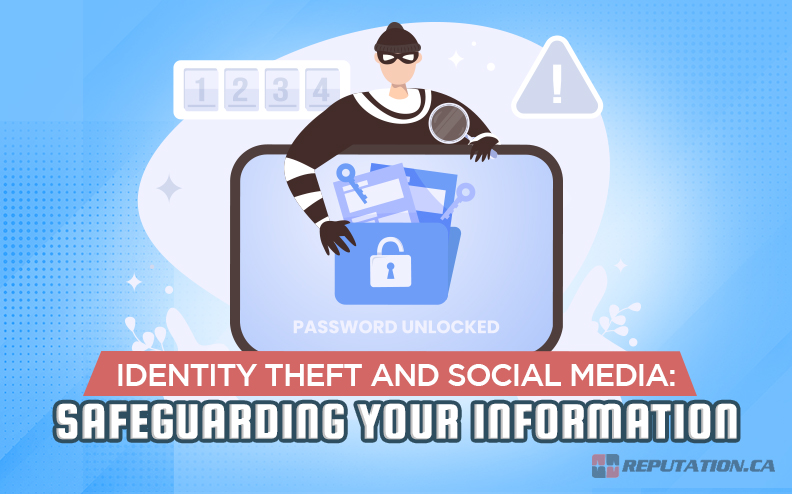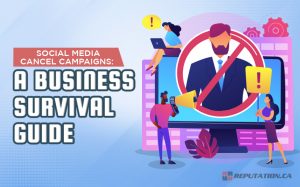Most people have friends or family that live in completely different parts of the world from them, making direct contact impossible. In the old days, we exclusively used letters and postal services to communicate long-range with individuals who matter to us or with whom we must discuss important topics. The problem was that it could take weeks or even months to get a response if the correspondence reached the correct person.
Nowadays, we have access to instantaneous long-range communication tools like cell phones and e-mail. One of the most common resources for communication is social media, which allows us to host personal information and communicate with anyone with an account on the same platform. The number of social media platforms has grown, and so have their associated risks.
Social media has become a double-edged sword that can put the account owner at risk should they share too much information. Not all information is meant to be made public, and not everything you post on social media is publicly accessible. Unfortunately, this has not stopped people from taking advantage of information on social media to pose as someone else.
Identity theft is one of the most nefarious crimes in modern society and can destroy the victim’s life depending on how far the perpetrator takes it. Social media is one of the biggest breach points for identity theft because of how much information is available on a profile. This means people must take measures to safeguard their information.
Social media platforms have spread like wildfire since the first one was deployed in 1997, though that website no longer exists. Currently, the major platforms include Facebook, Instagram, Snapchat, Twitter (recently rebranded as “X” by Elon Musk), and TikTok. These platforms let us share our thoughts and content while communicating with friends, family, and followers. Some people even use their social media presence to become influencers and finance their lives through their content.
Influencer accounts are among the most followed and targeted insofar as identity theft is concerned. Individuals who follow influencers tend to adhere to their idols’ requests and recommendations, but imitating them is extremely difficult. It is more common for normal people to be targeted by identity thieves because they are typically less reclusive with their personal information.
Despite warnings from major cybersecurity professionals, people willingly post personal information on their social media accounts. This includes things like their current employer, address, and daily activities. The scary part is that there is plenty of critical information on your account, even if you think you are being conservative with your data.
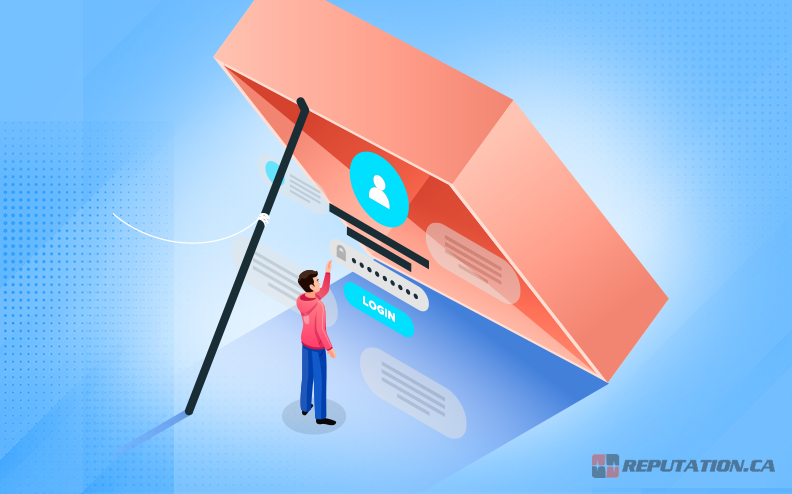
Typically, identity thieves can acquire the following information from a social media profile:
- The account owner’s full legal name.
- The account owner’s date of birth.
- The account owner’s home city and state.
- The account owner’s relationship status.
- The account owner’s high school and university alma mater.
- The account owner’s favorite activities and content.
- Photographs of the account owner and their friends and family.
This information is typically entered into your profile when you create it since the websites need to confirm you are old enough to have an account. These details also help differentiate between individuals who have similar or identical names for backend support. Unfortunately, this data is frequently stolen from profiles, so identity thieves can use it to acquire more sensitive information and pose as you. Sometimes, even your birth date can be used to guess your social security number if the criminal has the appropriate data.
Identity thieves can even use seemingly innocuous information like your pet’s name or a loved one’s birthday to acquire other information that would allow them access to more important profiles. Much of the information posted on social media can be used to guess passwords or the answers to security questions.
You might recall that many financial and medical websites ask for things like your first pet’s name or the model of your first car. These answers serve as security questions to prevent unauthorized access by anyone who would not have that information. Unfortunately, some people post enough data on their social media accounts to reveal those answers inadvertently that cybercriminals use to bypass those security measures. Once they access these accounts, they can damage your finances and reputation, making your life difficult.
What Can Identity Theft Do?
Being a victim of identity theft is a terrifying prospect since it is one of the most difficult crimes to stop, and the perpetrators are seldom found. It is also very difficult to prove identity theft since the criminal has identifying information that can help them bypass automated data checks. While it is possible to recover from identity theft, certain effects can radically affect your life. Sometimes, the damage caused by identity theft is permanent, but most of the effects can be undone with time and effort.
That said, there are 4 major ramifications of identity theft that can severely impact your standing in society. Once someone has your identity, they effectively become you since most of our society is automated and no longer relies on in-person verification (your name and information might be stolen, but your appearance is distinct). Insofar as your reputation is concerned, only 2 of the 4 major effects can damage it.
The first is how identity theft affects you financially since most identity thieves use your name and information to make purchases neither you nor they can afford. Identity theft costs American citizens $5,000,000,000.00 annually, which is a huge loss to law-abiding Americans. Unfortunately, because the spending habits of identity thieves often lean into the luxurious, it is possible for a criminal to bankrupt you before they are caught.
Many identity thieves use your information to apply for credit cards connected to your bank account. This means your money is actually taken whenever they make a purchase. An outside observer might assume this can be fixed by having your money replaced and the associated bank account closed to prevent repeat attacks. Unfortunately, there is more to it than just stolen funds.
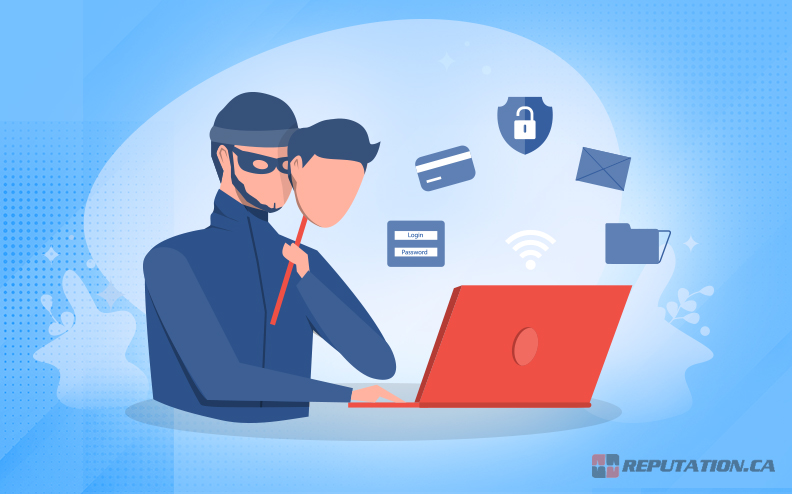
The constant spending and inability to pay off everything they purchased affects your credit score, which is an essential resource. Our credit scores affect our ability to take out loans to finance essentials like cars, insurance, and housing. When our credit plummets, we pay more than the fair market value or get disqualified from making certain purchases. A poor credit score can prevent you from securing an apartment or house since credit agencies view you as a delinquent. Once the theft is detected, you will likely have to:
- Dispute the thief’s activity in your credit files to undo the damage to your credit score and restore your original score.
- Close the compromised bank accounts and open new ones to replace them.
- Coordinate with the Social Security Administration to undo anything the thief has done with your Social Security number.
- Coordinate with the Internal Revenue Service to address any tax-related crimes the thief committed in your name.
Even if you are innocent, the thief’s actions can damage your credit score and your standing with government agencies like the SSA or IRS. Unfortunately, the effects of identity theft are not strictly financial. The actions of an identity thief can impact your standing with potential employers and friends if they take advantage of your data to access your social media accounts.
While it is less likely, some people steal identities and hijack social media accounts to make inflammatory posts or host phishing scams on your profile. This can drive your friends or potential employers to view you as problematic and cost you opportunities and connections. Losing these can damage your emotional and psychological state, and the stress could cause you to lash out, further damaging your relationships and opportunities.
In extreme cases, hackers might make inflammatory posts that go viral and become a worldwide phenomenon. This is especially troublesome for influencers whose accounts are compromised, and you must go into “PR mode” to undo the damage to your reputation.
Identity theft has far-reaching ramifications that can inhibit your ability to function in society, making living difficult. Identity theft is extremely common and yet one of the most difficult crimes to overcome. The best thing you can do to avoid the effects of identity theft is to preemptively secure your information so the crime does not affect you.
How to Secure Your Data
Securing your information is not overly difficult, though there will always be some publicly available details. Furthermore, there is no guaranteed way to avoid identity theft unless you live completely off the grid and avoid the Internet. Otherwise, the first step is curating your social media presence to offer as little information as possible.
Fortunately, most social media websites allow you to hide the details you must enter to make the profile (i.e., birthdate). Other social media accounts (most notably Snapchat) require the users to enter their phone number to create the account and use that number to alert contacts of their profile. Fortunately, this is also hidden; your friends cannot access your phone number unless you give it out. Unfortunately, many social media accounts still present a major hazard to your identity.
Therefore, you should go through your posts and ensure nothing might give criminals hints about passwords or security question answers. This means looking through every photo and post ever uploaded to your account for clues that might jeopardize your identity. For example, make sure the first car you ever owned is not present if that is one of the security questions you use.
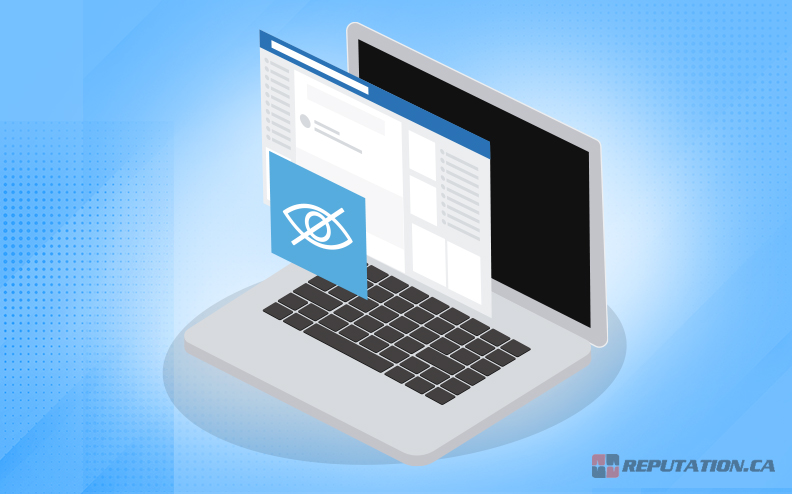
Unfortunately, this is insufficient to protect your identity completely, and you must go further to prevent the wrong people from accessing your information. Another important step is ensuring you have an extremely strong password protecting your account. If you have an easy-to-guess password, identity thieves and other cybercriminals can access your accounts and acquire more of your data than what is on your social media accounts.
This means you need a lengthy password that uses letters, numbers, and symbols that has between 14 to 16 characters. While this should reduce the risk of unauthorized access to your accounts, you still need to worry about who can find them.
Almost every social media platform offers privacy settings that can protect your account from being seen by the wrong people. Facebook allows you to restrict who can search for your profile, and X allows you to protect your account by allowing you to approve every following request you receive. This enables you to curate your followers directly and prevent any suspicious characters from viewing your profile.
The only disadvantage this has is if an approved follower or friend has their account hacked, and the cybercriminal uses their profile to access yours. Fortunately, this is rare and will likely not affect you.
Take Your Reputation Back!
Approximately 33% of American citizens have been the victim of identity theft, which is a terrifying number considering that it accounts for 109,000,000 people. The fact that social media can be weaponized effectively is even more terrifying. When our identities are compromised, it affects our financial standing, but money can be replaced thanks to government provisions.
The problem is restoring your good name after the thief drags it through the mud and causes government agencies like the SSA and IRS to look into you. It can even affect your livelihood since individuals will always believe you were responsible for the thief’s actions. Restoring your reputation will take time and effort that you might not have, but it might be possible to get help.
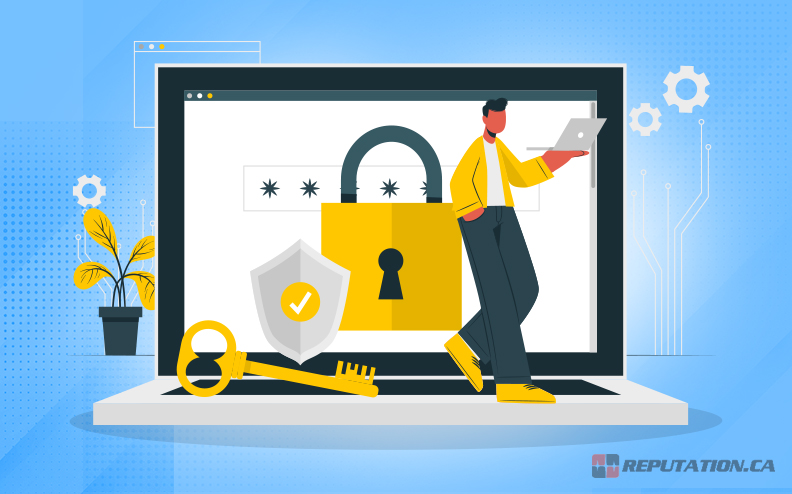
We at Reputation know how important your public image is and how severe the damage that identity theft can cause is. That is why we have dedicated ourselves to helping citizens, organizations, and companies manage their reputation in the face of major developments. We offer a comprehensive social media management package to protect your account from inflammatory content or being compromised by identity thieves. There are no shortcuts when it comes to your public image, so visit our website and take your reputation back!




